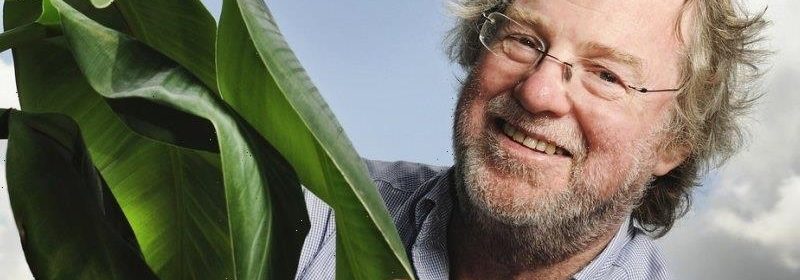Five scientists win top Australia Day honours: Amid pandemic, is science having a moment?

Australian science has taken centre stage at this year’s Australia Day Honours list, with leading scientists making up five of the seven people appointed Companions of the Order of Australia – the day’s highest honour.
The awards come at what could be an important moment – potentially a pivot point – for science. A global pandemic and worsening climate crisis has focused attention on the discipline like never before. The Australian government has won global praise for listening to – and acting on – the best scientific advice for dealing with the pandemic.
QUT’s Professor James Dale developed a genetically modified banana with high levels of vitamin A. Vitamin A deficiency kills more than half a million children in developing countries every year.Credit:QUT/Erika Fish
Yet a survey of the winners by the Herald and The Age reveal, while pleased by the new focus, many are pessimistic about change. Politicians would continue to ignore the evidence on the urgency of the climate crisis, many winners said.
“No, I am not hopeful,” said Professor James Dale. “I think there is ample evidence from this pandemic, particularly in the past 12 months, that politics and political allegiances will always trump science and scientific advice.”
Professor Dale, who is based at the Queensland University of Technology, was on Tuesday made a Companion of the Order of Australia for eminent service to agricultural science.
With funding from the Bill & Melinda Gates Foundation and the British government, he developed a genetically modified banana with high levels of vitamin A; vitamin A deficiency kills more than half a million children in developing countries every year. The banana is in field trials in Uganda at the moment, with plans to roll it out as a crop to other countries soon.
Professor Dale is among 1040 Australians honoured on Tuesday. Some 47 per cent of the 732 General Division awards went to women, the highest percentage ever.
Australia Day Honours have four levels of increasing seniority: Medal of the Order of Australia, Member of the Order of Australia, Officer of the Order of Australia, and Companion of the Order of Australia – which is reserved for Australians who have provided the “highest degree” of service.
This year, five of the seven Companions of the Order of Australia are scientists; 58 Australians in total were recognised for service responding to the pandemic.
“I admit to having had a perverse excitement at the beginning of the pandemic because people would finally understand the importance of public health,” said the University of Newcastle’s Professor Julie Byles, made an Officer of the Order of Australia on Tuesday for service to medical research. “We were now the knights in shining armour, giving advice in the daily briefings.”
Long-term, the success of COVID-19 vaccines might lead to more acceptance of science-based solutions to the big problems humanity faces – or, at least, more research funding, said Professor Dale.
Australia spends substantially less money on research and development as a percentage of our GDP compared to the OECD average – and that number has been declining since 2008.
“The general public has probably realised that imperative and huge investment in [research and development] can lead to amazing results. Unfortunately, nearly all this investment in R and D occurred outside Australia.”
At the same time, the pandemic has meant speaking out in public has never been tougher for scientists.
Of researchers who answered a survey run by the Australian Science Media Centre, one in five said they had received either death threats or threats of physical or sexual violence after speaking to the media about COVID-19.
“The rise of anti-science is very troubling,” said Professor Byles. “The problem is, everyone thinks they are an expert.”
Dr Alan Finkel, Australia’s chief scientist until 2020, has been appointed a Companion of the Order of Australia. He said politicians of all stripes now accepted the science of the climate crisis.
“The message is out there, and they have heard it. The question is how do you respond. You have to balance the science and the economics and the community issues and the politics.”
Professor Jennifer Graves said Australia should be “leading the charge rather than dragging the chain,” on the climate crisis. “Climate change is a much more serious threat to human existence than COVID-19.”
Professor Graves was made a Companion of the Order of Australia for her services to science, education, and mentoring women.
She is a world-leading evolutionary geneticist whose work on Australian animals transformed the way scientists think about how sex chromosomes work.
Several scientists bemoaned the lack of understanding the public still has about their work.
“I am always stunned that well-educated people have only the haziest idea of how genes work and get passed down. Let alone what a human is made of and how our bodies work.”
However, Mark Sullivan, who has been made an Officer of the Order of Australia for founding Medicines Development for Global Health, admitted that may partially be science’s fault.
“I feel that trust in expertise has suffered. The science community could be better at communicating why one week a glass of red wine is good for you and the next it is not.”
The Morning Edition newsletter is our guide to the day’s most important and interesting stories, analysis and insights. Sign up here.
Most Viewed in National
From our partners
Source: Read Full Article

